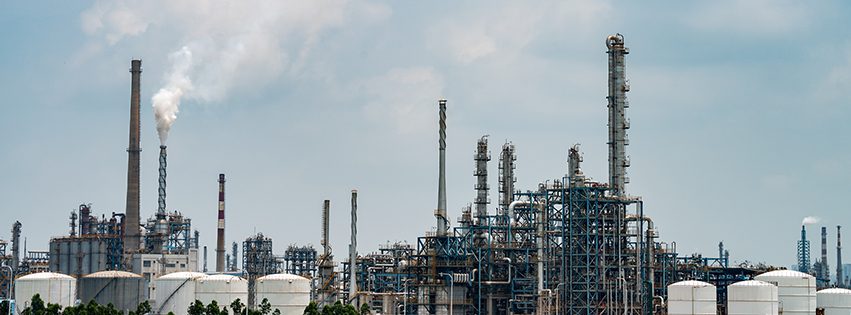Sustainable Manufacturing That Saves The Environment
What is World Environment Day?
First introduced by the United Nations in 1972, World Environment Day’s main objective is to educate people about the environment and what they can do to protect it. It is no secret that we have a pool of finite resources that are continuously under pressure as our population increases daily. The 2022 theme for this day is, #OnlyOneEarth. Therefore, it is important to ensure that these resources are maintained, and sourced sustainably and that there is a collective effort to protect our environment in and outside of the home.
To do our part in celebrating this day, we will further educate manufacturers about economically-sound processes that minimise negative environmental impact while conserving energy.
Did you know?
- Every three seconds, the world loses enough forest to cover a football pitch, and, over the last century, half of all wetlands have been destroyed.
- As much as 50 per cent of coral reefs have already been lost and up to 90 per cent could be lost by 2050, even if global warming is limited to an increase of 1.5°C.
- From 1950 to 2017, an estimated 9.2 billion tons of plastic was produced, 7 billion tons of which have become waste.
Manufacturing and Sustainability
Manufacturing is one of the most important sectors in the world, employing more than 100 million people. It is also unfortunately one of the largest contributors to global emissions, which are a key contributor to climate change.

Concern for the environment has recently prompted manufacturers to take a more proactive role in producing cleaner manufacturing processes and designing recyclable products.
Some industry leaders have adopted Smart factories to help the environment and to improve the atmosphere inside for the workers. Using green building standards, some factories run while also contributing to the planet, creating sunnier spaces, healthier air, and total self-sufficiency. Energy is generated on-site, water is reused, waste is reduced, if not eliminated, and recyclable materials are used. The good news is that this kind of process model doesn’t necessarily cost more than a conventional one and can even save money on energy, encourage workers to be more productive, and produce better, higher-quality products.
“Focusing on sustainability encourages you to rethink your business for the future and gain favour from a broad group of stakeholders.” Ernst & Young
At a previous Backing Britain engagement, Belinda Watson on behalf of Total Control Pro mentioned “…sustainability is an area we all know needs to be fixed. Those that are setting a blazing path with Smart Factories and digitisation will benefit from the rewards as more and more businesses start to include environmental and sustainable policies into their supply chain qualification process as we head toward the government commitment to net-zero by 2050.” Read article here
What You Can Personally Do to Protect Our Planet on World Environment Day
The planet is in danger. And it’s up to us to save it. Here are some things you can do today in your personal capacity to make sure we have a healthy planet for generations to come:
- Plant a tree or donate money for someone else to plant trees in your name. Trees provide food and oxygen. They help save energy, clean the air, and help combat climate change.
- Turn off the lights when you’re not using them.
- Use less water and energy.
- Reduce, reuse, and recycle. Cut down on what you throw away. Follow the three “R” s” to conserve natural resources and landfill space.
Environmental management is a key component of sustainability in production. It is the process of managing the environmental impacts of manufacturing and production.
Net Zero

The goal of environmental management is to reduce, reuse, and recycle materials. This will help to reduce the amount of waste that goes into landfills and incinerators.
There has never been a more optimal, nor more critical time for the UK to fulfil its climate ambitions. Global soft power currently rests upon the UK and its COP26 leadership with the biggest opportunity to determine our environmental future. In this decisive moment, manufacturing’s ability to spearhead the transition to net-zero is needed now more than ever.
The desire to embrace net-zero, reducing and offsetting all carbon emissions by 2050 is clear, providing endless opportunities for manufacturing to strengthen resilience, ‘build back better’ and pioneer international green transformation, ensuring it becomes a priority for the rising majority of members. But it’s a monumental task, with manufacturing responsible for around 11% of all GHG emissions, requiring both urgent and comprehensive action, as outlined in BEIS’ ambitious targets to cut emissions by 2/4 by 2035 and 90% by 20250.
With over three-quarters of manufacturers intending to set net-zero targets in the next 24 months but only 2 in 10 being close to achieving these targets, manufacturing’s recognition and capability must be transformed into action.
At TCPro we believe in reducing the headache of paperwork management by digitally presenting work instructions to your factory operators and opening a two-way communication system between your shop floor and top floor. With TCP you can say “Goodbye” to paperwork.
SaaS and the environment
At TotalControlPro we work with customers to transform their legacy on-premises data centres and applications to the cloud using advanced SaaS (Software as a Service) technologies that ultimately allow the users to use the right resources at the right time for their production lines, thereby eliminating waste and driving sustainability in the industry.
Our clients have gained positive results by using our platform. New entrants into the manufacturing market are more adept to using the cloud however, it is about using the right solution and that is where we come in.
But does operating on the cloud mean sustainability in an environmental sense?
Yes. The cloud can be thought of as being a massive, large-scale, concentrated that is a multi-tenanted resource, allowing customers to share resources, including energy consumption and cooling. That’s basically the equivalent of a very large, shared computer. An economy of scale is evident here, resulting in optimised energy consumption and lower costs as compared to the costs one would incur for setting up servers, server rooms, maintenance and let alone the space and potential vulnerabilities that on-premise systems bring.
Conclusion
Transformation for a cleaner, safer future is a daily celebration. The Manufacturing Industry needs to adopt these changes faster, smarter, and more efficiently. Invest in the future of your business, people, and environment.
Join us on Made in Midlands Virtual Expo (click here) or contact us and partner with TotalControlPro to create a sustainable and profitable future together.
New to TotalControlPro and have a question?
Just fill in the form below and we’ll get back to you as quickly as possible.




